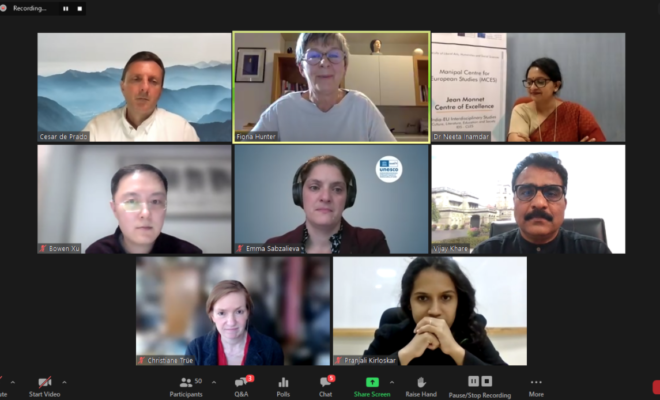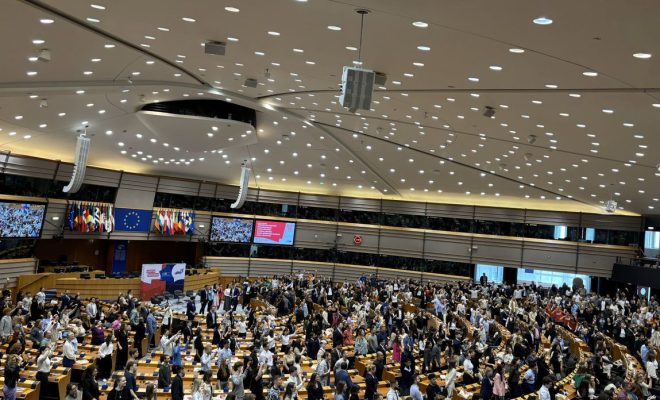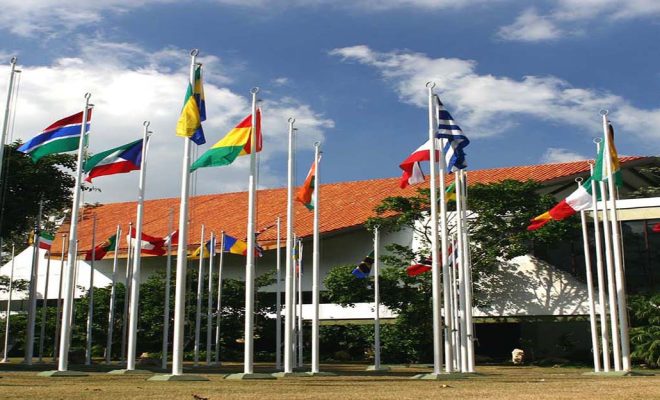The entry into force of the Regional Convention and its implications for young people in Latin America and the Caribbean

The Regional Convention on the Recognition of Studies, Diplomas and Degrees in Higher Education in Latin America and the Caribbean (hereinafter referred to as the 2019 Convention) entered into force on October 23. As of today, five States Parties have ratified this legally binding instrument, which means that obligations are subject to the provisions of the Convention, while any shortcomings of the States Parties may be remedied through the amendments provided for in the agreement. The provisions of international law apply in a supplementary manner.
The 2019 Agreement opens a range of opportunities to build a regional framework for the recognition of studies, degrees and diplomas in higher education inspired by shared principles and values. This axiological catalog that inspires the 2019 Convention is expressed in the commitment to offer fair, timely and actionable recognition to all those who have studies, diplomas or degrees conferred abroad (Justice); the equal exercise of the right of access to higher education (Human Dignity); the adoption of measures to facilitate the continuation of studies in institutions of higher education for holders of studies, degrees and diplomas from other States Parties, provided that they meet the requirements for admission to the academic program chosen in accordance with national legislation (Equity); and considerations – through their own normative constructions – in the case of refugees or displaced persons who do not have the documentary evidence necessary for recognition (Non-Discrimination), in addition to some other values.
The 2019 Convention also promises to serve as an instrument of traction for student mobility, with greater intensity associated with regional policies concomitant with academic mobility, in the Latin American and Caribbean region. This is no mean feat, given that this is the geographical bloc with the lowest student mobility rate in the world (Latin America and the Caribbean, 1.3%; South and West Asia, 1.7%; North America and Western Europe, 2.1%; East Asia and the Pacific, 2.1%; Central and Eastern Europe, 2.2%; Arab States, 4.5%, Sub-Saharan Africa, 4.7%; Small Island Developing States, 7.4%; and Central Asia with 14.4%. On average, student mobility represents only 2.6% of the student population enrolled in higher education institutions, which shows that student mobility continues to be the privilege of the few (UNESCO-IESALC, 2022).
The data also show that 40% of student mobility continues to go to four English-speaking countries (USA, UK, Canada and Australia), which reinforces the dominance of the English language and the soft power of nations, actively or passively.
Given that young people make up the majority of student mobility flows, and given that we are moving towards a more equitable social scenario in which the majority of our young people are linked to the higher education system, the entry into force of the 2019 Convention becomes a valuable instrument to take advantage of the potential of the demographic dividend by embracing recognition practices -always within the limits of national legislation- that allow for the recognition of partial studies, and the recognition of partial studies, the entry into force of the 2019 Convention becomes a valuable instrument to take advantage of the potential of the demographic dividend by embracing recognition practices -always within the limits of national legislations- that allow the recognition of partial studies, open and distance learning, considerations for refugees and migrants, longer and internationalized educational trajectories, among others, whose impact on employment and the circulation of talent has not yet been fully perceived.
Human rights have not favored everyone in the same way. They have not brought us the world to which we all, or at least most human beings aspire. In the field of higher education, much progress has been made, but there are also enormous debts in terms of the enjoyment and enjoyment of the right to higher education from the point of view of the recognition of academic qualifications obtained abroad.
Many of us are convinced that the fruits of the 2019 Convention will be promptly harvested, until the recognition of foreign qualifications in our Region is freed from its current lack of effectiveness. The untapped potential of this recognition for students and professionals, a fairer, more timely and expanded one, is undoubtedly an opportunity to catalyze the potential of the internationalization of intraregional higher education, as well as regional cooperation and integration through education; to take advantage of human talent in its continuous displacement, whether forced or voluntary; to cushion the consequences that sometimes involve cultural inequalities for the labor insertion of foreigners in the host countries, and to provide more and better education to our young people.
And, as a corollary, the Global Convention on the Recognition of Higher Education Qualifications came into force on March 5. It seeks to extend the principles of UNESCO’s five regional higher education conventions, as well as complementarity and mutual reinforcement. The World Convention reaffirms once again the right of individuals to have their qualifications assessed in order to apply for admission to higher education or to seek employment; an achievement that will still require much work and negotiation, but which also opens up great prospects for the future of student and professional mobility.
Author:
José Antonio Quinteiro Goris
RELATED ITEMS








